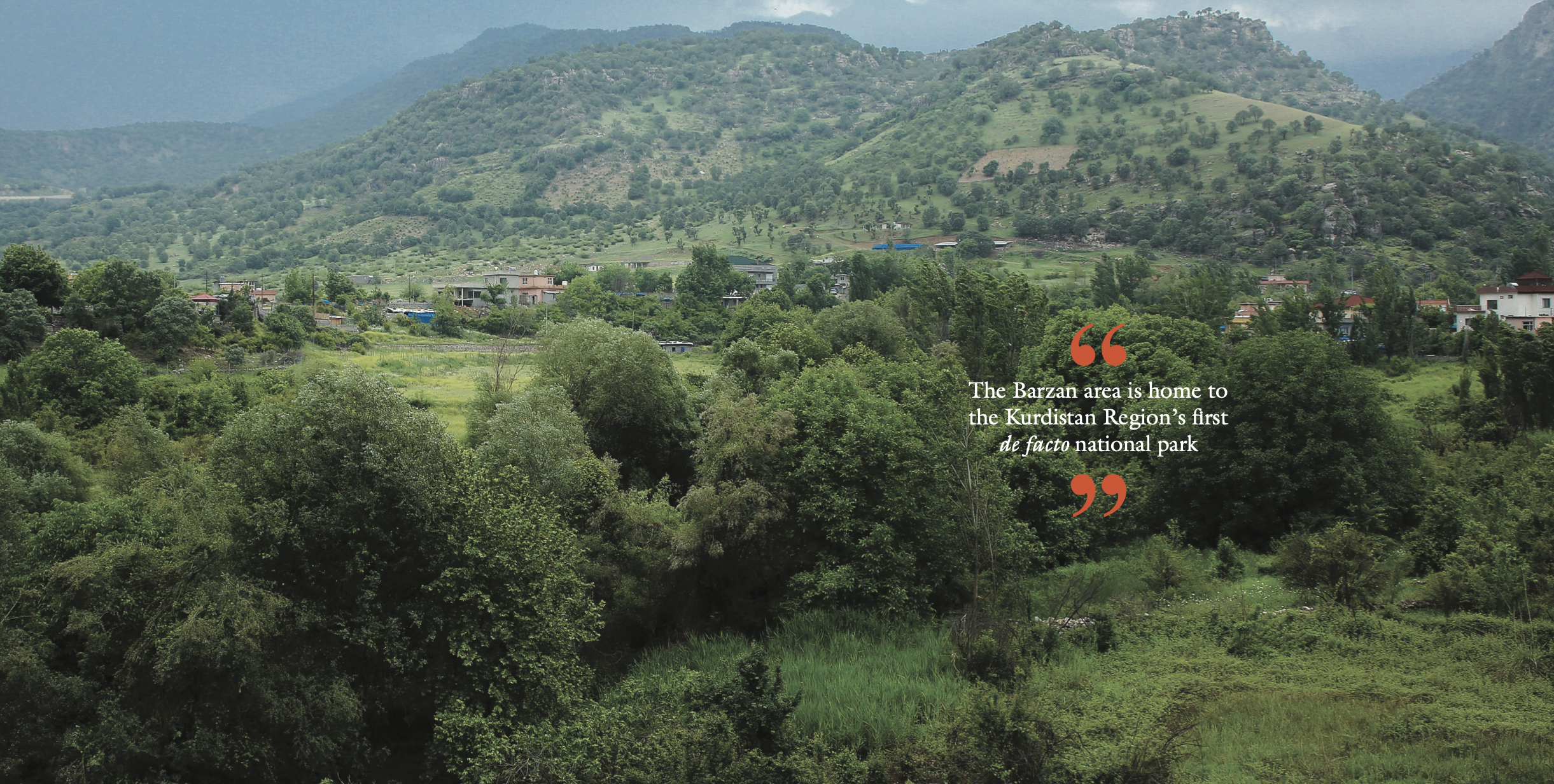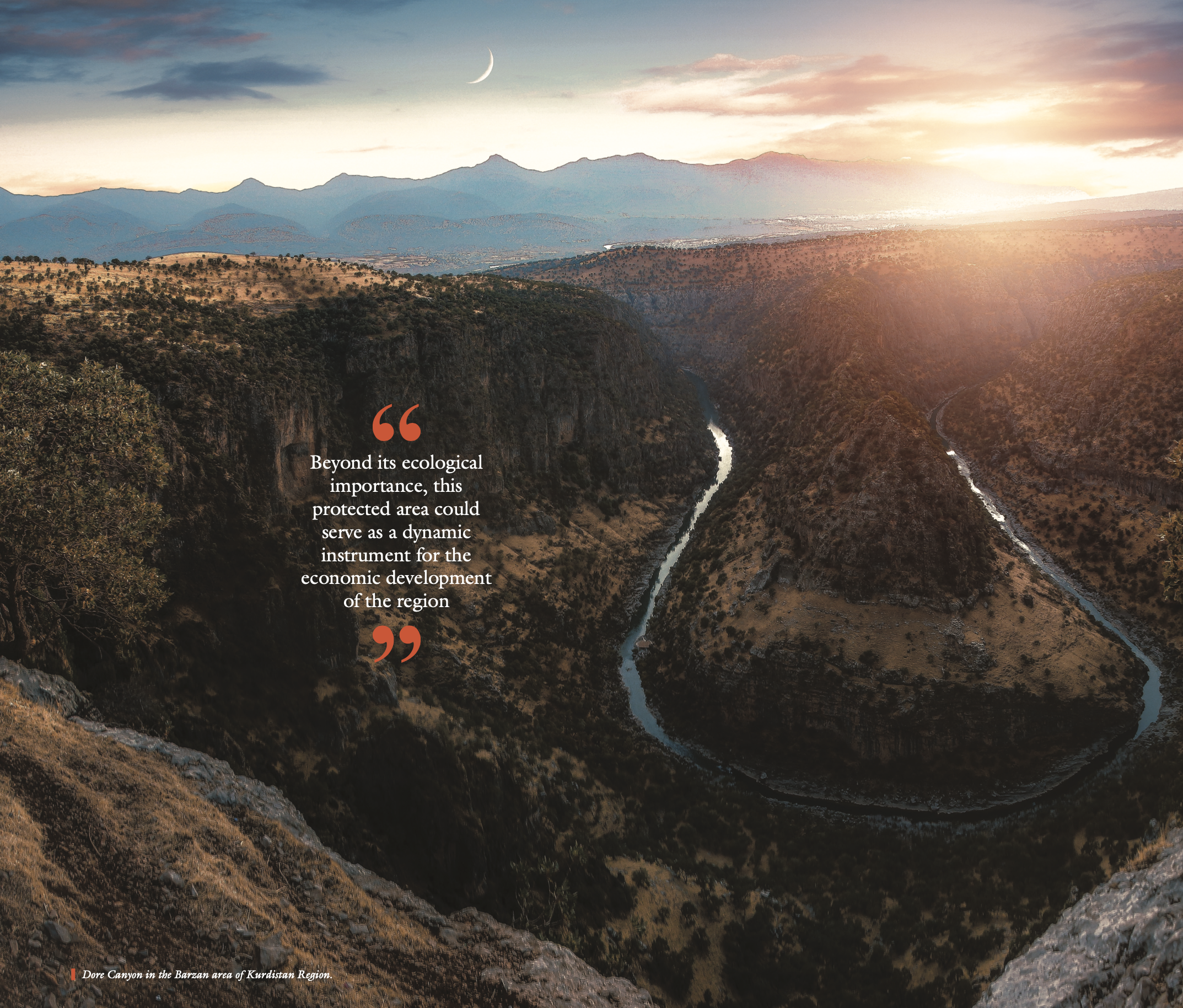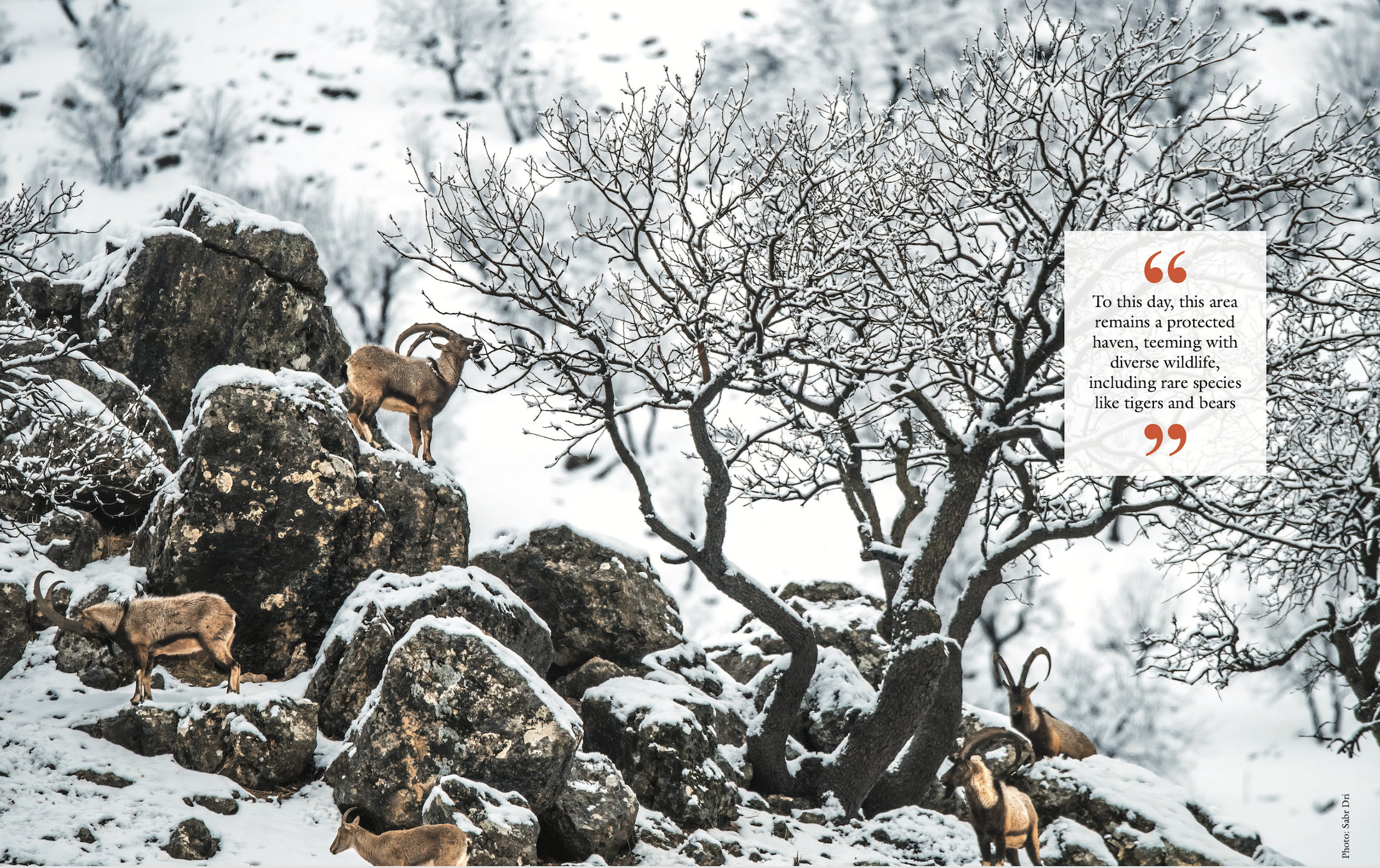Despite a challenging history of war and upheaval, the Barzan area is home to the Kurdistan Region’s first de facto national park. Founded by Sheikh Abdulsalam Barzani and further developed and expanded under the guidance of Sheikh Ahmad Barzani, the park reflects the local culture’s commitment to environmental protection, as hunting is prohibited and fishing and lumber activities are strictly regulated. The Barzani’s commitment to nature preservation during difficult times has transformed the area into a natural gem, standing as a testament to environmental conservation in the Kurdistan Region.
The global significance of such efforts is palpable, both considering the need for a continued commitment to environmental protection and the potential economic benefits tied to tourism and development. The existence of this protected area highlights the value of implementing strategies for expanding forested areas, drafting modern environmental laws, and seeking international collaboration for further advancement in environmental standards. Ultimately, the Barzan area provides an ecological haven for flora and fauna and symbolizes the vital connection between humans and nature, while playing an important role in the history of Kurdistan‘s revolutions.

Cultivating Barzan
The United States established its first national park in 1872, driven by a collective vision to protect plants, animals, and their habitats from human degradation. The primary goal was to preserve the ecological system, safeguard endangered animal and plant species, and maintain the delicate balance of life within these areas.
The cultivation of the Barzan area is an exceptional testament to untouched nature that has persevered despite the challenges presented by human conflict. Amid daily bombardments and attacks, Barzan became a symbol of resilience, in addition to embodying the principles of a national park. This historic initiative reflected the core values of the local culture: prohibiting the killing or hunting of wild animals, regulating fishing seasons, and imposing restrictions on tree felling in the forest. To this day, this area remains a protected haven, teeming with diverse wildlife, including rare species like tigers and bears.
During harsh winters, the people of Barzan refrained from felling trees for heating, and even during periods of food scarcity, the hunting of wild animals was strictly regulated. The environmental protection measures taken by the Barzanis, despite their high cost, have transformed the area into a natural gem. Notably, it stands as one of the oldest de facto national parks in the Middle East.

Global ecological significance
Globally, the significance of such areas is increasingly recognized, as environmental protection evolves into a complex global issue. The environmental sacrifices made by the people in Barzan over the last century should be upheld by subsequent generations, fostering an enduring culture of environmental protection. Establishing an educational framework that promotes environmental consciousness is also pivotal for achieving and maintaining high-quality standards, reflecting the distinctive culture of the Barzan area. This framework should guide future efforts, including the development of facilities and the provision of environmental education for the wider public. The region’s forward-thinking stance has the potential to enable the introduction of new standards in environmental protection, such as waste separation and management.
Beyond its ecological importance, this protected area could serve as a dynamic instrument for the economic development of the region. Economic progress will heighten awareness among residents, making them active stewards of the protected area. Similar protected areas worldwide play a crucial role in environmental conservation.
Moreover, this unique example of untouched nature should be showcased to both local and foreign tourists. The area can benefit from innovative techniques to attract tourism, including expanding the forested areas by planting millions of native trees. Meanwhile, enforcing modern environmental laws to address new challenges and seeking membership in international environmental protection organizations, such as the International Union for Conservation of Nature, can facilitate knowledge sharing and field studies to categorize and elevate environmental standards.

Dr. Mahmood Mahmood is an Economist and holds a PhD from the University of Erlangen, Germany. He has worked as researcher at the center for Iraq Studies in Erlangen – Germany.

